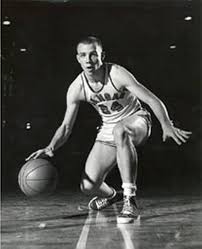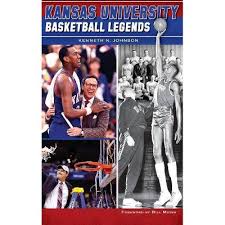The NBA Finals date back to 1947 (when they were known as the Basketball Association of America Finals) and the very 1st NCAA tourney was held in 1939. Olympic basketball competition is even older: it debuted as a demonstration event in 1904 and the men’s version became a medal sport in 1936, with the women finally getting their chance to go for the gold in 1976. The United States has dominated Olympic basketball competition from the start: the men have won 15 gold medals in the 18 tournaments they have participated in during the past 84 years, while the women have won 8 gold medals in the 10 tournaments in which they have competed during the past 44 years. Those of you who were looking forward to the 2020 Olympics opening ceremonies in Tokyo on July 24, 2020 will have to wait an extra 364 days, as the coronavirus caused a postponement until July 23, 2021. Due to the absence of college basketball since mid-March, HoopsHD’s Jon Teitel decided to fill the void by trying to interview as many prior Olympic players/coaches as possible so that you have something to read this summer while not watching the Summer Games. We continue our coverage by chatting with Dr. Kenn Johnson, KU alum and author of multiple books about KU basketball, about Al Kelley winning an NCAA title in 1952 and a gold medal in 1960.
 (photo credit: kansascity.com)
(photo credit: kansascity.com)
Al was born in Dearing and went to high school in McCune: what made him choose Kansas for college? He chose KU because he had been a Jayhawk fan all of his life and his older brother Dean had previously been recruited by Coach Phog Allen: for Al it was an easy choice. Later in life he often said, “I am a Kansan by birth…but a Jayhawk by the Grace of God!”
What kind of relationship did he have with Coach Allen? Al was an easy choice for Phog: not only because he was Dean’s younger brother but because he was an excellent high school player who helped his McCune teams win 3 conference championships, 4 district titles, and a 2nd-place finish in the state tourney during his senior year. Phog had a great relationship with almost all of his players. In the offseason he would write letters to all of them, keeping them informed of what was happening at KU. He loved the Kelley brothers and kept in touch with them for many years.
In the 1952 NCAA title game he scored 4 PTS in a win over St. John’s and in the 1953 NCAA title game he scored 20 PTS in a 1-PT loss to Indiana: what did it mean to him to win a title, and what did it mean to him to lose a title? Al was a sophomore: back then players were not allowed to be on the varsity during their freshman year. Phog had a tendency to mostly play his five best players so Al did not get much playing time that year. However, it is always a thrill to win a national championship and he was very proud of his brother, who was KU’s starting PG. In 1953 Al has become the starting PG and was the 2nd-leading scorer in the championship game. It was an exciting game and KU was tied with Indiana late in the game but the Hoosiers made a free throw with 27 seconds left and held on to win the game. It was most disappointing for Al and the Jayhawks, particularly because the game was played in Kansas City in front of a mostly Jayhawk-friendly crowd.
In 1954 he finished 2nd in the nation with 86.2 FT%: what made him such a great FT shooter? After making only 70% of his FTs in 1953 he spent the summer working primarily on improving his shot…and it worked. From the start of the 1954 season he was focused and productive from the foul line, helping KU bounce back after losing the 1953 national championship game to Indiana.
That spring he was drafted 56th overall by Milwaukee but instead chose to join the Peoria Caterpillars where he won multiple AAU national championships: was it a difficult decision to turn down the NBA, and how did he like having his brother Dean as 1 of his teammates? Back then the AAU was competitive with the NBA. The salaries were about the same: he was offered only $5,000 by the Milwaukee Bucks but the AAU offered players the additional opportunity to gain business employment experience while also playing basketball. In his first season with the Caterpillars (again joining his brother) Al helped lead the team to the AAU national title and the 1954 World Basketball Championship in Brazil. Then in 1960 the Caterpillars won their league title and were selected to play in the Olympics. He retired in 1999 after a 45-year career with Caterpillar so all-in-all his choice of the AAU over the NBA was a great one.
He spent 2 years in the Air Force: what impact did his service have on him either on or off the court? After two years at Caterpillar, Al served in the US Air Force for two years in 1956/1957 and starred on their basketball team, helping them to win the AAU National Championship in 1957. The experience helped him maintain his basketball skills, such that the next year after returning to Caterpillar he helped the team win the AAU championship again and qualify for the Olympics.
He played for team USA at the 1960 Olympics: what did it mean to him to represent his country, and what did it mean to him to win a gold medal? Serving as the backup PG to Oscar Robertson/Jerry West, Kelley was proud of the 1960 team and said, “We were voted the best amateur team in Olympic history.” After being named to the Naismith Basketball Hall of Fame in 2010, Al remembered beaming with pride as the national anthem played during the gold medal ceremony.
His older brother Dean won a gold medal with team USA in 1952: was there a sibling rivalry involving who won a gold medal 1st or were they just happy to be the only brothers to ever win an Olympic gold medal in basketball? I do not recall ever reading anything about a sibling rivalry: only about respect for each other. After playing with 1 another at McCune and KU, they again played together with the Caterpillars and reportedly were very proud of each other’s contributions both on and off the court.
In 2010 his Olympic team (featuring 10 future NBA players) was inducted into the Basketball Hall of Fame: where does that rank among the highlights of his career? He said, “It was a real thrill for me to go to the Olympics. It was an honor for me to have a front-row seat.” His gold medal is prominently displayed in the Booth Family Hall of Athletics at KU.
He passed away in 2016: when people look back on his career, how do you think that he should be remembered the most? KUSports.com columnist Tom Keegan said of Kelley the fact that “his warm smile and friendly manner will be missed by many would be an understatement akin to calling Allen Fieldhouse a pretty nice place to watch a basketball game.” The Lawrence Journal-World obituary said it best: “Al will be fondly remembered by family and friends in many ways: As a loving and devoted husband to Barb, and as an inspiring and adoring patriarch to his children and grandchildren. As an admired and loyal friend. As a proud patriot and Air Force Veteran. As a gold medal Olympian and a member of the 1952 KU champion basketball team. As a shining example of the benefits of hard work and perseverance. His character framed his accomplishments beautifully.” After Kelley retired from the Caterpillars he and his wife moved back to Lawrence and frequently attended many KU sports events. Coach Bill Self said, “Al Kelley is Kansas basketball. He was always a pleasure when he would come to the office or a practice and was a fixture at home games.”

